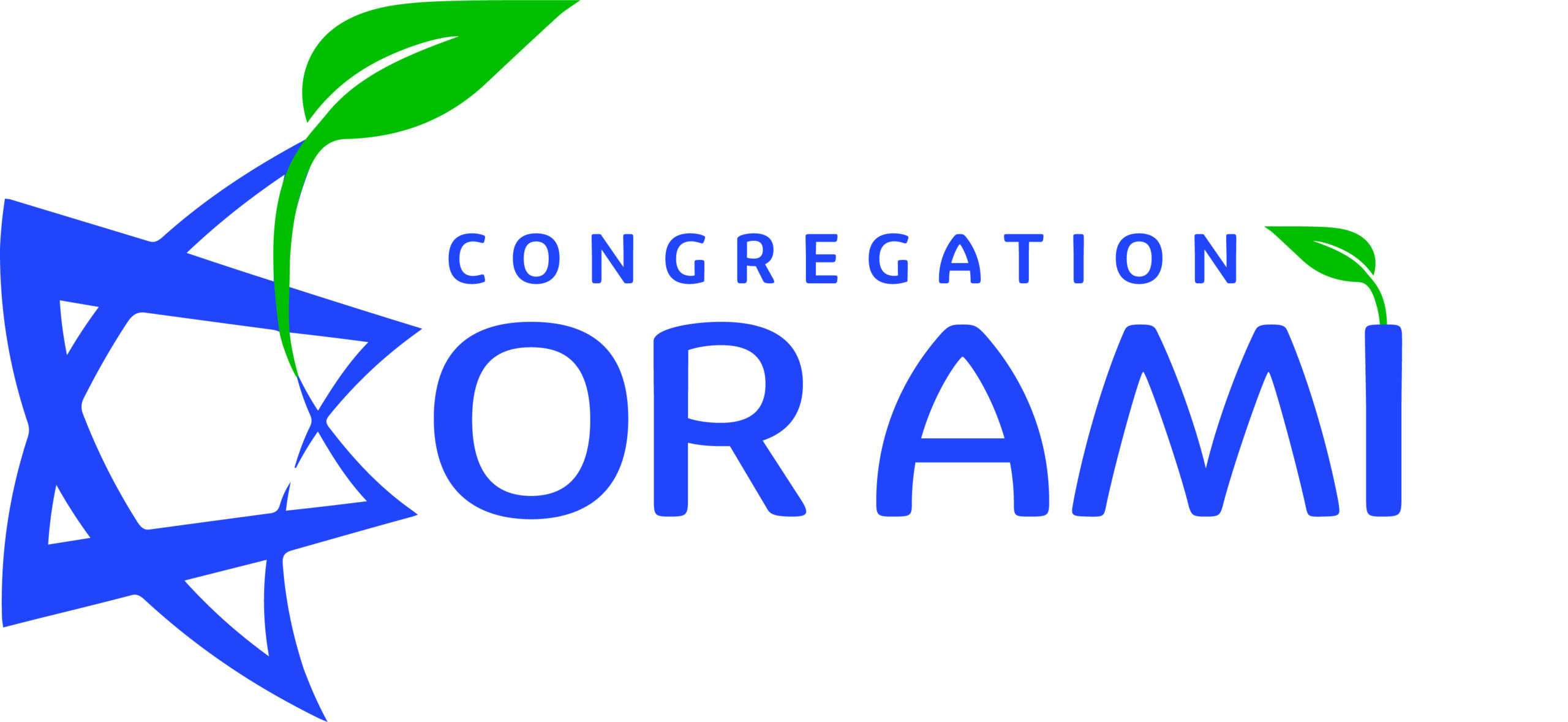Gratitude for the Little Things
D’var Torah on Eikev
This week’s Torah portion teaches us to express gratitude for one of the most basic things in life–the very food that we eat. It says in Deuteronomy 8:10 that we should bless God for our food. Based on your experiences at Jewish community events, would you guess that this verse says to thank God before we eat or after we eat?
Most of us are used to saying a prayer before we eat at Jewish communal events. That prayer is, of course, hamotzi, the blessing for bread, which once said over bread can represent our gratitude for the rest of the meal as well. But this week’s Torah portion actually tells us to bless God after we have eaten to our satisfaction, not before we eat.
The idea of blessing God before we eat comes from a teaching in the Talmud, which says that someone who eats without saying a blessing first is considered to be like a thief. This statement is based on an understanding that everything ultimately belongs to the God who created it. So even though we have legally acquired ownership of an apple by purchasing it at the grocery store, we must still consider the source of this apple before us. Someone had to put it into the apple bin at the store, after someone else delivered it, after someone else harvested it, after someone else grew it, after someone else planted it, after God created the seeds that turn into apple trees.
The practice of saying blessings over our food is an important reminder for us to consider the bigger picture and appreciate the work of others. I recently came across a quote from an American writer named Wilferd A. Peterson, who said, “When we become more fully aware that our success is due in large measure to the loyalty, helpfulness, and encouragement we have received from others, our desire grows to pass on similar gifts. Gratitude spurs us on to prove ourselves worthy of what others have done for us. The spirit of gratitude is a powerful energizer.”
Although Mr. Peterson was not a Talmud scholar, he recognized the power of awareness and gratitude, just as our Torah and rabbis did thousands of years ago.
The rabbis of the Talmud recognize that it is difficult to walk around in a state of perpetual gratitude. Sometimes our minds are preoccupied with other things, and we often find ourselves pressed for time. Knowing these limitations, the rabbis could have shrugged and said, “Whatever. It’s okay to skip our practice of gratitude when we’re really busy.” But that’s not what the rabbis did. They decided to promote an abbreviated version of the longer grace after meals.
Now this abbreviated expression of gratitude came from a shepherd named Benjamin. According to the Talmud, this shepherd ate a sandwich and said only seven words to express his gratitude to God. The seven words were “Blessed is the Master of this Bread.” It might sound like a strange blessing, but after some debate, the rabbis agreed that these seven words were enough to fulfill the mitzvah of thanking God after we eat. This simple shepherd’s prayer, uttered not in Hebrew, but in the Aramaic vernacular, was enough to elevate the basic need to eat into an act of holiness.
In closing, I would like to teach you these seven words in Aramaic, along with a tune I learned from Reconstructionist Jews in Jerusalem. My hope is that even when you are busy, this tune will help you to remember to express gratitude for all of the basic things in life, including your food. Thank you. And Shabbat Shalom!
Click here for a link to the song.



